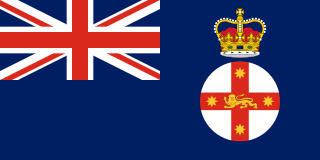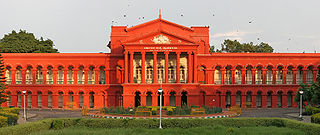Inquests in England and Wales are held into sudden and unexplained deaths and also into the circumstances of discovery of a certain class of valuable artefacts known as "treasure trove". In England and Wales, inquests are the responsibility of a coroner, who operates under the jurisdiction of the Coroners and Justice Act 2009.
A sheriff is a government official, with varying duties, existing in some countries with historical ties to England, where the office originated. There is an analogous although independently developed office in Iceland that is commonly translated to English as sheriff, and this is discussed below.
A coroner may conduct or order an inquest into the manner or cause of death, and investigate or confirm the identity of an unknown person who has been found dead within the coroner's jurisdiction.

A justice of the peace (JP) is a judicial officer of a lower or puisne court, elected or appointed by means of a commission to keep the peace. In past centuries the term commissioner of the peace was often used with the same meaning. Depending on the jurisdiction, such justices dispense summary justice or merely deal with local administrative applications in common law jurisdictions. Justices of the peace are appointed or elected from the citizens of the jurisdiction in which they serve, and are usually not required to have any formal legal education in order to qualify for the office. Some jurisdictions have varying forms of training for JPs.

The Judiciary of the Hong Kong Special Administrative Region is the judicial branch of the Hong Kong Special Administrative Region. Under the Basic Law of Hong Kong, it exercises the judicial power of the Region and is independent of the executive and legislative branches of the Government. The courts in Hong Kong hear and adjudicate all prosecutions and civil disputes, including all public and private law matters.

The District Court of New South Wales is the intermediate court in the judicial hierarchy of the Australian state of New South Wales. It is a trial court and has an appellate jurisdiction. In addition, the Judges of the Court preside over a range of tribunals. In its criminal jurisdiction, the Court may deal with all serious criminal offences except murder, treason and piracy. The Court's civil jurisdiction is generally limited to claims less than A$750,000.

The Local Court of New South Wales is the lowest court in the judicial hierarchy of the Australian state of New South Wales. Formerly known as the Court of Petty Sessions and the Magistrates Court, there are more than 160 branches across New South Wales where the Local Court has jurisdiction to deal with the majority of minor civil and criminal matters.
Manslaughter is a common law legal term for homicide considered by law as less culpable than murder. The distinction between murder and manslaughter is sometimes said to have first been made by the ancient Athenian lawmaker Draco in the 7th century BCE.

The Coroner's Court of New South Wales is the court in the Australian state of New South Wales where legal proceedings, in the form of an inquest or inquiry, are held and presided over by the State Coroner of New South Wales, a Deputy State Coroner of New South Wales, or another coroner of the state of New South Wales.
The Coroner's Court of Western Australia is a court which has exclusive jurisdiction over the remains of a person and the power to make findings in respect of the cause of death of a person in Western Australia.
The name of "Coroners Court" is the generic name given to proceedings in which a Coroner holds an inquest in Victoria.
The Coroners Court of Tasmania is the generic name given to the Coronial Division of the Magistrates Court of Tasmania. It is a court which has exclusive jurisdiction over the remains of a person and the power to make findings in respect of the cause of death of a person, a fire or an explosion in Tasmania.

The Coroners Court of Queensland is a court in the court hierarchy of Queensland, Australia. The Court has exclusive jurisdiction in Queensland over the remains of a person and to make findings about the cause of death of a person.

The Coroner's Court of the Australian Capital Territory is a court which has exclusive jurisdiction over the remains of a person and the power to make findings in respect of the cause of death of a person or fire in Australian Capital Territory.
The title of Coroners Court is the name given to proceedings in which a coroner holds an inquest or an inquiry in the Northern Territory.
The Court of Criminal Jurisdiction was a criminal court established in 1787 under the auspices of the First Charter of Justice in the British Empire of New South Wales, now a state of Australia. The Court of Criminal Jurisdiction was the first criminal court in the colony. The Court was abolished in 1823, replaced by the Supreme Court of New South Wales.

The Magistrates Court of the Australian Capital Territory is a court of summary jurisdiction that deals with the majority of criminal law matters and the majority of small civil law matters in the Australian Capital Territory, the Jervis Bay Territory and the Australian Antarctic Territory.
An inquest is a judicial inquiry in common law jurisdictions, particularly one held to determine the cause of a person's death. Conducted by a judge, jury, or government official, an inquest may or may not require an autopsy carried out by a coroner or medical examiner. Generally, inquests are conducted only when deaths are sudden or unexplained. An inquest may be called at the behest of a coroner, judge, prosecutor, or, in some jurisdictions, upon a formal request from the public. A coroner's jury may be convened to assist in this type of proceeding. Inquest can also mean such a jury and the result of such an investigation. In general usage, inquest is also used to mean any investigation or inquiry.
The administration of justice is the process by which the legal system of a government is executed. The presumed goal of such administration is to provide justice for all those accessing the legal system. The phrase is also used commonly to describe a University degree, which can be a prerequisite for a job in law enforcement or government.
John Birley Abernethy is a former State Coroner of New South Wales.















